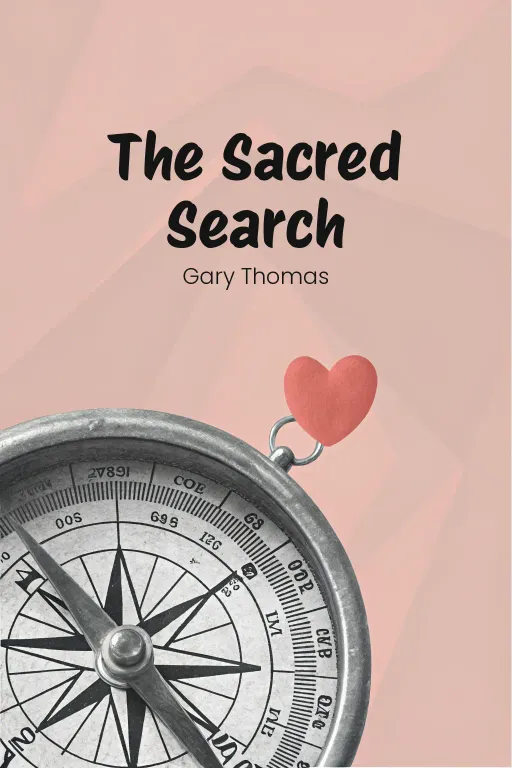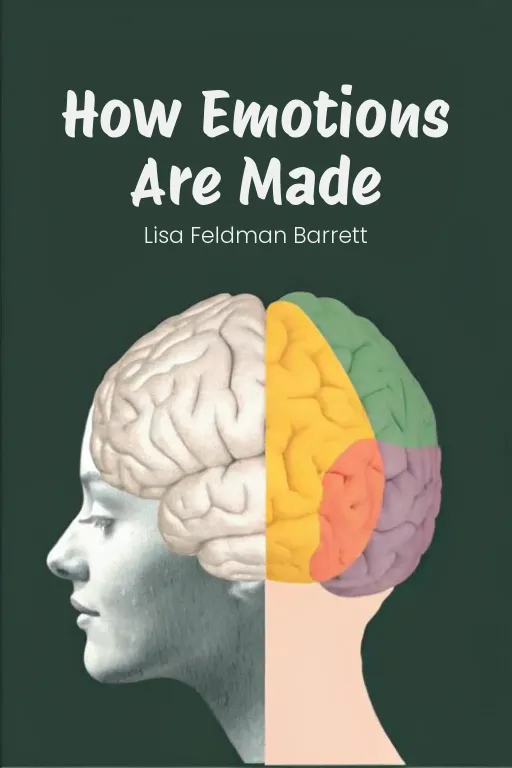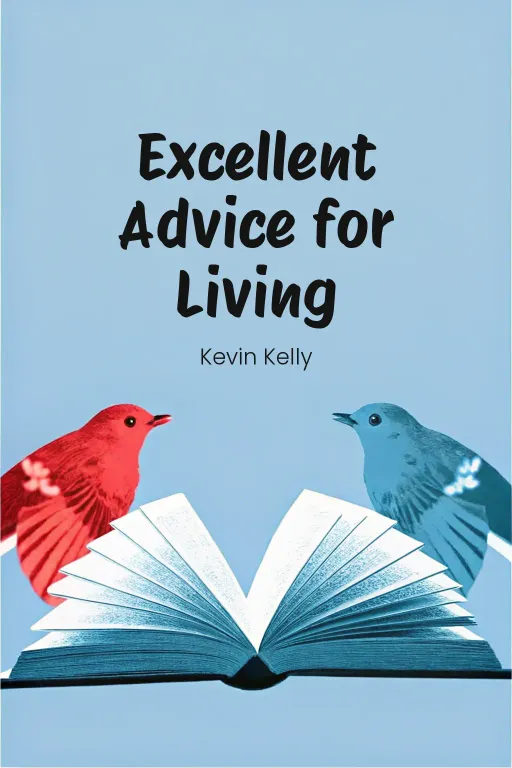
Lasting Intimacy: Beyond the Bedroom
Podcast by The Mindful Minute with Autumn and Rachel
Lessons from Extraordinary Lovers
Introduction
Part 1
Autumn: Hey everyone, welcome! Today, we're diving into something super interesting that affects all of us: intimacy. And we're not just talking about any intimacy—we're talking about “magnificent” sex. What if I told you it's not really about technique or performance, or even just those spontaneous moments? What if the real key was things like trust, vulnerability, and a real connection? Rachel: Okay, so basically, you're saying it's less about what happens in the bedroom and more about the relationship itself? I'm listening... but I'm also a little skeptical if it's that simple. Autumn: Exactly! Which leads us to the book we're exploring: Magnificent Sex: Lessons from Extraordinary Lovers by Peggy J. Kleinplatz and A. Dana Ménard. They actually interviewed people who’ve had these incredible experiences we all hear about but aren't sure how to achieve. The book really challenges some common ideas about what makes sex fulfilling--and, spoiler alert--it’s definitely not what you see in movies. Rachel: So, no "Top 10 Seduction Tips" list in this one? Autumn: Nope. Kleinplatz and Ménard really zone in on the deeper, more relational side of sex. Emotional intimacy, trust, exploring things together—that’s the foundation they found after talking to many, many real people. This isn't about chasing one-time fireworks; it’s about building a base for a spark that lasts. Rachel: Alright, so what's our plan for today? How are we actually going to break this down for everyone? Autumn: We’re going to tackle three big parts. First, we'll look at the core pieces that Kleinplatz and Ménard found--what really makes sex magnificent. Think of it like looking at the blueprints. Then, we’ll go over the practical part—how can people grow these experiences in their own lives? And lastly, we’ll see how all this is changing the way therapists are helping their clients with intimacy—and, in turn, how it could change relationships in general. Rachel: So, it’s like we’re building the perfect house of intimacy—from the foundation to decorating and all the little details—and figuring out how to live in it happily ever after. Autumn: Perfect way to put it, Rachel. This episode is about rethinking what intimacy can be when we let go of shallow ideas and really focus on what brings people closer in every way. So, let's dive in!
The Foundations of Magnificent Sex
Part 2
Autumn: Okay, let's dive right into the foundation here – the core concepts that make sex truly magnificent. This is key because it sets the stage for everything else, you know? It gives us that solid ground to build on for what makes sex genuinely amazing. We’re talking about emotional intimacy, communication, trust, that sort of thing, and being present. These pillars don’t just appear, they're built intentionally. Rachel: Right, so they're like the foundation of our…intimacy castle? I get it. Emotional intimacy, though, that sounds kinda vague. What “do” we mean by that, exactly? Autumn: Good clarifying question, Rachel! Emotional intimacy is that deep connection, that feeling of being completely seen, accepted, and safe enough to be vulnerable with your partner. It's more than just liking or loving someone, it's about trusting them with your authentic self, even the not-so-perfect bits. One participant in the study really nailed it, saying they couldn't imagine great sex without genuinely “caring” for their partner. Without that emotional depth, it was just...flat. Rachel: So, magnificent sex isn't just chemistry or attraction, more like a “result” of emotional trust? Autumn: Exactly! To illustrate, let me share a story from the book. One couple talked about how their relationship started off quite surface-level – good, but not deeply connected. Then they started practicing what they called “radical honesty.” Late at night, they shared their fears, their past hurts, vulnerabilities…not always easy conversations, but they created such incredible closeness. And lo and behold, as their emotional intimacy grew, their sex life transformed, too. Rachel: Wait, so, airing all your childhood traumas over a bottle of wine can “actually” improve your sex life? Autumn: <Laughs> In a way, yes! They were moving beyond the surface to build a foundation of trust and understanding. Intimacy became a shared adventure, not just a physical act. You know, peeling back layers to reveal your true self and letting your partner do the same. Rachel: I got it. But, let's be real, being that honest sounds terrifying. What if your partner doesn’t react well? Autumn: That’s where communication comes in, which is our second cornerstone. Extraordinary communication bridges that gap. A lot of couples find it daunting to express what they want or need, especially in the bedroom, right? Rachel: For sure. Most people are probably just worried about saying the wrong thing. Autumn: Exactly. Like one woman in the book, early on in her relationship, she focused on “performing” instead of really talking. She feared judgment, so she stayed silent, leading to a stagnant, unsatisfying dynamic. “But,” when her partner encouraged her to express what she actually enjoyed, it was like the floodgates opened! It didn’t just improve their sexual experiences, but created ongoing playful dialogues that deepened their bond outside the bedroom too. Rachel: So, once she got over the fear of rejection and started communicating, it wasn't just about logistics, it became a tool for emotional connection? Autumn: Precisely! It's not just about “talking” either. Non-verbal communication is key as well. There's this great example from a man who learned to pay attention to his partner’s subtle cues – breathing, body tension, things like that. He called it “hearing what isn’t said." This intuitive responsiveness made their connection feel effortless. Rachel: That's fascinating. It's like they turned intimacy into a real conversation, through words “and” actions. But I imagine that level of understanding takes time, doesn’t it? Autumn: It does, Rachel. And that brings us to another critical foundation, trust. Without trust, it's almost impossible to be that open, verbally or non-verbally. A lack of trust keeps people guarded. Rachel: Yeah, trust feels like the scaffolding that holds everything else up. If it wobbles, the whole thing crumbles. Autumn: Perfect analogy! One couple highlighted in the book really drove this home. Early in their relationship, they dealt with constant misunderstandings and emotional distance. It wasn’t until they prioritized trust-building – through consistent actions and emotional reliability – that they created the safety they needed. Rachel: Consistent actions? Like…taking out the trash on time? Autumn: <Laughs> Don’t laugh! Mundane things like keeping promises or showing up emotionally can foster trust. For this couple, once they felt secure enough to be vulnerable outside the bedroom, that trust took root in their intimacy as well. Suddenly, they felt free to explore and voice desires they'd kept hidden for years. Rachel: So, to recap, trust isn’t something you just decide to have, it’s an investment you make continuously. Autumn: Absolutely. And that investment leads us to our final cornerstone: being present. Rachel: Ah, here comes the mindfulness moment, huh? Autumn: Trust me, Rachel – it’s more than just a buzzword. This pulls from “flow state” psychology, where you’re so immersed in the moment everything else fades away. Imagine being so focused during intimacy that you’re not worrying about the laundry, or how you look, or whether your partner is enjoying things. You’re just “there”, fully absorbed. Rachel: Okay, but how do people even get into that zone? Modern life feels designed to distract us 24/7. Autumn: Valid point! One research participant admitted they used to dismiss this idea entirely. But through mindfulness – simple breathing exercises or focusing on their partner’s physicality – they quieted their mental chatter. The result? They found moments of deep connection that totally transformed their intimacy. Rachel: So mindfulness isn’t about checking “out” of reality, it’s about tuning “in” more deeply? Autumn: Precisely. Another person described this beautifully. She talked about an afternoon spent just kissing and touching with no distractions, no agenda. Time seemed to dissolve as they focused on each other so fully that it turned what might have been a mundane encounter into something truly magnificent. Rachel: “Wow”, that's deep. It all boils down to this: emotional intimacy, communication, trust, and presence. They aren't revolutionary ideas, but together, they're the magic formula for what this book calls magnificent sex. Autumn: Exactly, Rachel. These aren’t techniques, they’re relational dynamics. And understanding them gives us a framework, a starting point for anyone looking to elevate their emotional and physical connections.
Pathways to Optimal Intimacy
Part 3
Autumn: Okay, so, now that we understand the groundwork, let’s talk about putting it into practice in relationships. How do we transform these, sometimes abstract ideas – trust, emotional intimacy, presence – into real, actionable steps that people can use every day? It’s really about creating those pathways to deeper, more fulfilling intimacy. Rachel: Alright, this is where it gets interesting, the practical application! Because, you know, understanding that emotional connection matters is one thing, but actually doing it? How do you make that happen without it feeling… forced, or like you're suddenly in a therapy session at the dinner table? Autumn: I hear you, that’s a valid point. So, the book really zeroes in on achievable steps. And one of the most crucial, yet often overlooked, is emotional maturity. It's truly the foundation for connecting with someone, and it all starts with self-awareness and personal growth. Rachel: Emotional maturity, huh? Sounds like something people throw around when they want to sound emotionally mature, right? What does that really entail, though? Autumn: Well, it's about being able to step back and ask yourself, "What am I feeling, and why am I feeling it?" It's about managing your emotions, instead of letting them control you. And, most importantly, it's about building a safe space where both individuals feel comfortable being vulnerable. Like saying, "I see you, I hear you, and I'm here with you," even when things get tough or uncomfortable. Rachel: So, it's not just about being Mr. or Ms. Cool, Calm, and Collected; it's about navigating emotions in a constructive way. But how does that translate into a relationship? Autumn: You know, one of the people in the book shared a great example. Growing up, she learned that emotions were a weakness, so she buried her feelings under layers of shame and avoidance. Then, in a new relationship, her partner actually encouraged her to talk about her fears, her insecurities, even things she felt embarrassed about. And instead of shutting her down or trying to “fix” her, he just listened and validated her feelings. Over time, this participant described a huge shift, not just in their level of intimacy, but in how she felt about herself. She said, “For the first time, I felt like I could let go without being judged.” Rachel: That's powerful. And I bet that once she felt safe enough to open up emotionally, that connection influenced pretty much every other aspect of their relationship? Autumn: Absolutely. It's like a feedback loop, right? Emotional maturity builds vulnerability, which deepens the connection, and that enhances both emotional and physical intimacy. And the best part is, mistakes aren't deal-breakers. Emotional maturity also means handling conflicts with empathy and patience, instead of getting defensive or shutting down. It builds resilience in the relationship. Rachel: So, emotional maturity isn't some dramatic, overnight transformation. It's more about building trust through consistent reliability. Autumn: Exactly. And naturally from there, another critical pathway emerges: self-awareness. This is when you really start to understand your desires, boundaries, and even your hangups around intimacy. Rachel: Self-awareness. Now we're diving into introspection. What does that look like in practice? Are people supposed to sit in a silent room and meditate about their childhoods? Autumn: Not necessarily, although reflection helps. Self-awareness really means understanding what you enjoy, what makes you uncomfortable, and what you truly need in an intimate relationship. Like, one person in the study realized, through journaling, that his dissatisfaction in the bedroom wasn’t about his partner; it was because he didn’t know how to ask for what he wanted. Rachel: Wait, so he was just… winging it and hoping for the best? Autumn: Pretty much! But what’s interesting is how he changed that. He took a workshop focusing on body positivity and communication, which helped him become more attuned to his own needs. Gradually, he started experimenting with non-verbal cues, guiding his partner’s hand, or saying something simple like, “That feels nice when you do it this way.” Over time, these small changes led to encounters he described as “poetry in motion.” Rachel: Wow, he turned something that many people might see as a chore – explaining your preferences – into a shared journey. But what about the other side of things? What if your partner doesn't respond well to your newfound honesty? Autumn: Well, that's where trust comes back into play. When both individuals are committed to a safe, non-judgmental space, it's easier to have these conversations without fear of rejection. But you know, it’s not just about the heavy talks, it's also about keeping things fresh. Which leads us to one of my favorite parts of the book – how to balance novelty and familiarity in long-term relationships. Rachel: Yes, that classic problem: how do you keep things exciting without completely losing the comfort of what you've built together? Autumn: The researchers highlight that it's all about “intentional curiosity.” You know, one couple, married for 25 years, started this thing called "curiosity nights." Every few weeks, they'd set aside an evening to explore something new, whether it was a new bedroom idea or taking a salsa class together. And they described it as almost rediscovering each other, even after all that time. Rachel: So, novelty doesn't have to be some grand, dramatic gesture; it can be as simple as trying something new together, something slightly outside your comfort zone? Autumn: Exactly. And the cool part is, novelty thrives because of the trust and emotional safety that's already there. The familiarity acts like a safety net, giving both people the confidence to take those playful risks. And speaking of playfulness, that’s another major theme – embracing exploration as a way to bring joy and spontaneity into intimacy. Rachel: Okay, I like the sound of this. Are we talking pillow fights and board games, or does it get a bit more… spicy? Autumn: It can be anything! One person shared a story about a roleplay attempt that went completely off the rails and became hilarious. Instead of being embarrassed, they ended up <Laughs> laughing so hard that it became one of their most cherished memories. That just goes to show that playfulness isn't about getting it "right." It's about creating a sense of adventure, where imperfection is not just accepted, but celebrated. Rachel: So really, the core idea here is to change your mindset: intimacy isn't a performance; it's a partnership. One built on trust, curiosity, and, dare I say, a lot of laughter. Autumn: Exactly! These pathways are about seeing intimacy as a shared, evolving journey – one that prioritizes connection over perfection at every step.
Implications for Therapy and Relationships
Part 4
Autumn: Okay, so with all these pathways we’ve been talking about, it naturally leads us to how this all applies to therapy and just personal growth overall. Thinking big picture now, how do these principles affect our relationships and even how therapists approach things? Rachel: Right, we're zooming out! So, how do these ideas about connecting emotionally and being genuine impact how we view relationships? And maybe even change how therapists guide people through them? Autumn: Exactly. Let's start with a super common issue – desire discrepancies. You know, one person's always in the mood, or never in the mood, compared to the other. Rachel: Ah, the age-old mismatch. It's like the kind of problem people just shrug off as, "We're too different," and that's that. Autumn: Right, but the authors say that instead of seeing these differences as deal-breakers, couples can use them as a way to connect. It's a total mind shift. There's this couple in the book’s research with totally different sex drives, for example. Rachel: Let me guess, guy wanted it all the time, wife not so much? Autumn: Pretty much! He was high libido, and she was stressed from work and family, so not as interested. But instead of just focusing on that difference as a problem, their therapist helped them focus on getting emotionally closer first. They started "connection evenings," no sex allowed. Just talking, holding hands, being affectionate, no pressure. Rachel: No pressure, huh? I bet that changed things. Autumn: It totally did. Over time, it rebuilt their emotional connection, which led to her wanting physical intimacy more. It wasn't the sex itself that got better, it was their connection. Rachel: So, instead of "fixing" the libido like it's a broken machine, they focused on mending their emotional bond. So it's not about how often you do it, but how good the relationship is, right? Autumn: Exactly! Therapists should help couples reframe the goal. It's not about matching libidos perfectly or checking off boxes—it's about helping them deepen their bond. Rachel: Okay, practical time. What does the therapist actually do? "Talk it out" can't be the whole answer. Autumn: Definitely not. They use effective techniques. Like, they might ask, "What does desire mean to you?" or "How do you feel when your partner wants to be intimate?" This can reveal deeper emotional needs. Rachel: So, less surface-level, more diving into the emotional stuff driving those libido gaps. Autumn: Exactly. And the point is to reduce rejection or blame. Couples realize it's not about one partner being "too much" or the other "not enough". It's about understanding each other and finding a rhythm that works. Rachel: Makes sense. But what if resentment's already set in? Like, one partner's frustration has made the other shut down completely? Autumn: Good question. That's where optimism comes in. The book emphasizes how important an optimistic outlook is for resetting those dynamics, especially when things are already tense. Rachel: Optimism seems tough when a relationship's already struggling. Where do you even start? Autumn: It's about taking small steps. There was this woman who had trouble with intimacy after a tough divorce. Starting over with her new partner felt scary – she was focused on how she might "fail". Her therapist told her to think of intimacy as a fun journey, not a test she had to pass. Rachel: So, no pressure to nail it, huh? Autumn: Exactly. She used a gratitude journal to focus on small, positive moments with her partner, like a kind gesture or fun chat. Over time, those moments built her confidence and made her see intimacy as joyful and exploratory, not scary. Rachel: I like that. It's intentional optimism, not just being cheerful for no reason. Like saying, "Let's celebrate what's working and build from there." Autumn: Exactly the takeaway. Optimism isn't just "positive thinking"—it's a practice that helps couples embrace growth and possibility, even when things feel stuck. Rachel: Okay, optimism's great, but you need actions too. What tools do you use to actually implement this mindset? Autumn: Absolutely, that’s where practical techniques come in. One of my favorites is the concept of “exploration dates.” Rachel: Pretend I’m clueless. What’s an exploration date? Autumn: It’s creating space for fun discovery in your relationship – no pressure to be sexual. Couples might share fantasies or try new ways to connect emotionally. Rachel: That sounds…terrifying. What if the fantasies are, uh, a little out there? Autumn: That’s the point! It makes it safe to be vulnerable and honest. One couple said just talking about their fantasies, even ones they wouldn’t act on, made them feel closer. Rachel: So basically, it’s not about the destination; it’s about opening up and seeing what happens. Autumn: Exactly. And then there are “rituals of intimacy.” Cuddling before bed, setting aside time for real conversations, even a daily goodbye kiss. Rachel: Sounds like relationship maintenance. The little things that seem small but hold everything together. Autumn: Exactly. It reinforces the connection every day, so intimacy feels natural instead of something you have to force. Rachel: But, experiments don’t always go as planned, right? There’s room for mistakes and laughs, right? Autumn: Oh, totally. One couple in the book tried a new accessory and it went hilariously wrong but instead of being embarrassed, they laughed. That brought them closer; intimacy isn’t always serious. Rachel: So, even when things don’t go perfectly, it’s still a win because the connection is the real prize. Autumn: Exactly. By seeing intimacy as a shared journey rather than a list of goals, couples open up to growth, joy, and discovery. Rachel: You know, this all feels so different from how society usually talks about sex—like either it’s about performance or just a transaction. Autumn: Right, and that’s the beauty of this. By focusing on connection, optimism, and exploration, we’re not just changing how we think about intimacy—we’re changing the whole story of what makes relationships work.
Conclusion
Part 5
Autumn: Okay, so today, diving into “Magnificent Sex”, we're really questioning some of the basic ideas we have about intimacy. It's not just about technique or, you know, some magical spark that just appears. It really boils down to building a solid base of emotional intimacy, trust, honest communication, and just being completely present. These things create the foundation for truly amazing intimacy. Rachel: Right, but it's not enough to just understand these ideas, is it? It's about actively putting them into practice. I mean, from developing emotional maturity and self-awareness to finding that sweet spot between novelty and familiarity, the book makes it clear that creating magnificent moments requires a conscious effort, being vulnerable, and most importantly, intention, wouldn't you agree? Autumn: Totally, Rachel. And these aren't just for the bedroom either; they offer a complete way to improve our relationships in every aspect. Whether it's setting up "connection evenings" to bridge that emotional gap, choosing to be more optimistic, or going on "exploration dates" to experience new things together, it's all about prioritizing that connection at every turn. Rachel: And the beauty of it? Perfection isn't the goal, is it? We've seen that there's plenty of room for mistakes, genuine laughter, and even those awkward moments. Because ultimately? Intimacy isn't about nailing it every time, it's about showing up and being truly present with your partner, isn't it? Autumn: Exactly. So, my thought for consideration: What if we started seeing intimacy not as something to "get right," but as a continuous journey of exploration and deepening our connection? What if the greatest gift we could offer, both in and out of the bedroom, was simply our authentic, present selves? Rachel: Mic drop indeed! A challenge for all of us to rethink how we show up in our relationships – and not just physically, but emotionally too. Autumn: Beautifully put, Rachel. Let's reshape the current conversation around intimacy into something that is enduring, meaningful, and deeply connected. Because after all, that's what makes it truly magnificent.









